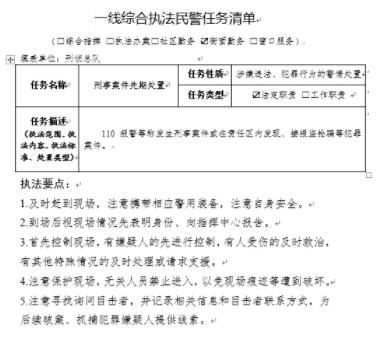表格内容如下:

1、实现批量导入word文档,取文档标题中的数字作为编号
2、除取上面打钩的内容需要匹配出来入库入库,其他内容全部直接入库mysql
|
1
2
3
4
5
6
7
8
9
10
11
12
13
14
15
16
17
18
19
20
21
22
23
24
25
26
27
28
29
30
31
32
33
34
35
36
37
38
39
40
41
42
43
44
45
46
47
48
49
50
51
52
53
54
55
56
57
58
59
60
61
62
63
64
65
66
67
68
69
70
71
72
73
74
75
76
77
78
79
80
81
82
83
84
85
86
87
88
89
90
91
92
93
94
95
96
97
98
99
100
101
102
103
104
105
106
107
108
109
110
111
112
113
114
115
116
117
118
119
120
121
122
123
124
125
126
127
128
129
130
131
132
133
134
135
136
137
138
139
140
141
142
143
144
145
146
147
148
149
150
151
152
153
154
155
156
157
158
159
160
161
162
163
164
165
166
167
168
169
170
171
172
173
174
175
176
177
178
179
180
181
182
183
184
185
186
187
188
189
190
191
192
193
194
195
196
197
198
199
200
201
202
203
204
205
206
207
208
209
210
211
212
213
214
215
216
217
218
219
220
221
222
223
224
225
226
227
228
229
230
231
232
233
234
235
236
237
238
239
240
241
242
243
244
245
246
247
248
249
250
251
252
253
254
255
256
257
258
259
260
261
262
263
264
265
266
267
268
269
270
271
272
273
274
275
276
277
278
|
# wuyanfeng# -*- coding:utf-8 -*-# 读取docx中的文本代码示例import docximport pymysqlimport reimport os# 创建数据库链接conn = pymysql.connect( host='rm-bp1vu5d84dg12c6d59o.mysql.rds.aliyuncs.com', port=3306, user='root', passwd='wyf092415*', db='pays', charset='utf8',)# 创建游标cursor = conn.cursor()#切片函数def section(info,key,len11): a = len(info) print(a, type(a)) d = [] e = 0 g = -1 i = 0 task_class=[] while i < len(info): # for i in range(len(info)): # i+=1 print("i::::", i) try: #c = info.index("a", e) #print("c:::::", c) c = info.index(key, e) #print("c:::::", c) print("c类型判断",type(c)) except valueerror: print(valueerror) try: if (c != '') & (g < int(c)): d.append(c) g = c i = c + 1 print("illlldddd:", i) e = c + 1 continue elif (c == ''): break except unboundlocalerror: print(unboundlocalerror) return task_class break print("d", d, type(d)) print(d[0], type(d[0])) print("d的长度:",len(d)) #开始切片 if len(d) != 0: for j in range(len(d)): print("info11:::", info, type(info)) info = ''.join(info) print("info222:::",info,type(info)) print("d[%d]"%j,d[j]) #print("d[j]:5"%j,info[d[j]:5]) llll = info[d[j]+1:d[j]+5] print("d[%d]:5" % j, llll) task_class.append(llll) print("task_class::11", task_class) task_class=",".join(task_class) print("str1112222",task_class) return task_classdef insettable(file): print("file::::::::::::::::::::", file) print("type::::::::::::::::::::", type(file)) # file1 = file # file1 = str(file1) ddd = re.findall("知识库\\\(\d+)", file) print("ddd:::::::::::", ddd) print("ddd[0]:::", ddd[0]) ddd = int(ddd[0]) print("ddd::::", type(ddd)) file = docx.document(file) # 读取表格: t = file.tables[0] print(t) print("1:", t.cell(0, 0).text) # 1 cell1 = t.cell(0, 0).text print("tyep::::", type(t.cell(0, 0).text)) print("2:", t.cell(0, 1).text) # 2 cell2 = t.cell(0, 1).text print("2:", t.cell(0, 2).text) # 2 cell3 = t.cell(0, 2).text print("2:", t.cell(0, 3).text) # 2 cell4 = t.cell(0, 3).text print("cell4:::::::::", cell4) print("3:", t.cell(1, 0).text) # 3 cell5 = t.cell(1, 0).text print("4:", t.cell(1, 2).text) # 4 cell6 = t.cell(1, 2).text print("5:", t.cell(1, 3).text) # 5 task_type = t.cell(1, 3).text # task_type = re.findall('.*[☑√](.*)$', cell7) # task_type = ''.join(cell7) print("task_type111111:", task_type) # task_class = task_class[0:4] '''低级处理方式 a = int(task_type.count("☑")) print("a|||||||", a, type(a)) b = int(task_type.count("√")) print("b|||||||", b, type(a)) if (a == 1) | (b == 1): print("111111111111111111") # task_type = re.findall('.*[☑√](.*)$', task_type) task_type = re.findall('.*[☑√](.*)$', task_type) print("task_type1", task_type) task_type = ''.join(task_type) print("task_type2", task_type) task_type = task_type[0:4] print("task_type3:d:%s,b=%d" % (a, b), task_type) elif (a == 0) & (b == 0): print("2222222222222222222") task_type = '法定职责' print("a:%s,b=%s" % (a, b), task_type) elif (a == 2) | (b == 2): print("333333333333333333333") task_type = '法定职责,工作职责 ' print("a:%s,b=%s" % (a, b), task_type) ''' #调用切片函数 task_type1 = section(task_type, "√", 4) task_type2 = section(task_type, "☑", 4) task_type1 = "".join(task_type1) task_type2 = "".join(task_type2) print("task_type1:::", task_type1,type(task_type1)) print("task_type2:::", task_type2,type(task_type2)) if task_type1.strip()!="": task_type = task_type1 print("task_type111:::", task_type1) elif task_type2.strip()!="": task_type = task_type2 print("task_type222:::", task_type2) print("6:", t.cell(1, 4).text) # 6 cell8 = t.cell(1, 4).text print("7:", t.cell(2, 1).text) # 7 cell9 = t.cell(2, 1).text # 获取文档对象 # file = docx.document("d:\\配置库\\公案app\\1.2 系统规格\\知识库\\14人员死亡先期处置.docx") print("段落数:" + str(len(file.paragraphs))) # 段落数为13,每个回车隔离一段 lenn = len(file.paragraphs) print("len:", lenn) # 输出每一段的内容 for para in file.paragraphs: print(para.text) # 输出段落编号及段落内容 for i in range(len(file.paragraphs)): print("第" + str(i) + "段的内容是:" + file.paragraphs[i].text) list6 = [] for i in range(len(file.paragraphs)): if 0 == i: print("i:", i) lis0 = file.paragraphs[i].text print("list0:", lis0) print(type(lis0)) elif 1 == i: print("i:", i) task_class = file.paragraphs[i].text print("lis1", task_class,type(task_class)) '''低级处理方式 print("task_class111111:", task_class) c = int(task_class.count("☑")) task_class = ''.join(task_class) #print(task_class.index('☑')) print("c|||||||", c, type(c)) d = int(task_class.count("√")) print(task_class.index('√')) print("d|||||||", d, type(d)) task_class = re.findall(r'[☑√](?:.*)', task_class) task_class = ''.join(task_class) task_class = task_class[1:5] print("task_class", task_class) ''' #调用切片函数 task_class1 = section(task_class, "√", 4) task_class2 = section(task_class, "☑", 4) task_class1 = "".join(task_class1) task_class2 = "".join(task_class2) print("task_class1:::", task_class1,type(task_class1)) print("task_class2:::", task_class2,type(task_class2)) if task_class1.strip()!="": task_class = task_class1 print("task_class11:::", task_class1) elif task_class2.strip()!="": task_class = task_class2 print("task_class22:::", task_class2) if 2 == i: print("i:", i) lis2 = file.paragraphs[i].text print("lis2", lis2) print(type(lis2)) preparer = re.findall('填表单位:(.*?)$', lis2) preparer = ''.join(preparer) print("preparer:%s" % preparer) # elif 3 == i: # print("i:", i) # lis3 = file.paragraphs[i].text elif 3 == i: print("i:", i) lis4 = file.paragraphs[i].text print("lis4", lis4) print(type(lis4)) elif 3 < i < lenn - 1: print("i:", i) print(file.paragraphs[i].text) print(type(file.paragraphs[i].text)) # list6[i-5] = list6.append(file.paragraphs[i].text) list6.append(str(file.paragraphs[i].text).strip('\xa0')) # list6.append("%s\n" % str(file.paragraphs[i].text).strip('\xa0')) print(list6) key_steps = "\n".join(list6) # print("key_steps:\n",key_steps.strip('\n')) cursor.execute( "insert into `t_knowledge_base` (`no`, `preparer`, `task_class`, `task_name`, `task_specification`, `task_type`, `task_desc`, `task_basis`, `key_steps`) values ('%d','%s','%s','%s','%s','%s','%s',null,'%s')" % ( ddd, preparer, task_class, cell2, cell4, task_type, cell9, key_steps)) conn.commit()def traverse(f): fs = os.listdir(f) for f1 in fs: tmp_path = os.path.join(f, f1) if not os.path.isdir(tmp_path): print('文件: %s' % tmp_path) insettable(tmp_path) else: print('文件夹:%s' % tmp_path) traverse(tmp_path)path = 'd:\\配置库\公案app\\1.2 系统规格\\知识库'traverse(path)#单文件调测# path = 'd:\\配置库\\公案app\\1.2 系统规格\\知识库\\14人员死亡先期处置.docx'# insettable(path)# 关闭游标cursor.close()# 关闭连接conn.close() |
以上这篇python读取word文档,插入mysql数据库的示例代码就是小编分享给大家的全部内容了,希望能给大家一个参考,也希望大家多多支持服务器之家。
原文链接:http://www.cnblogs.com/wzsx/p/9228557.html










